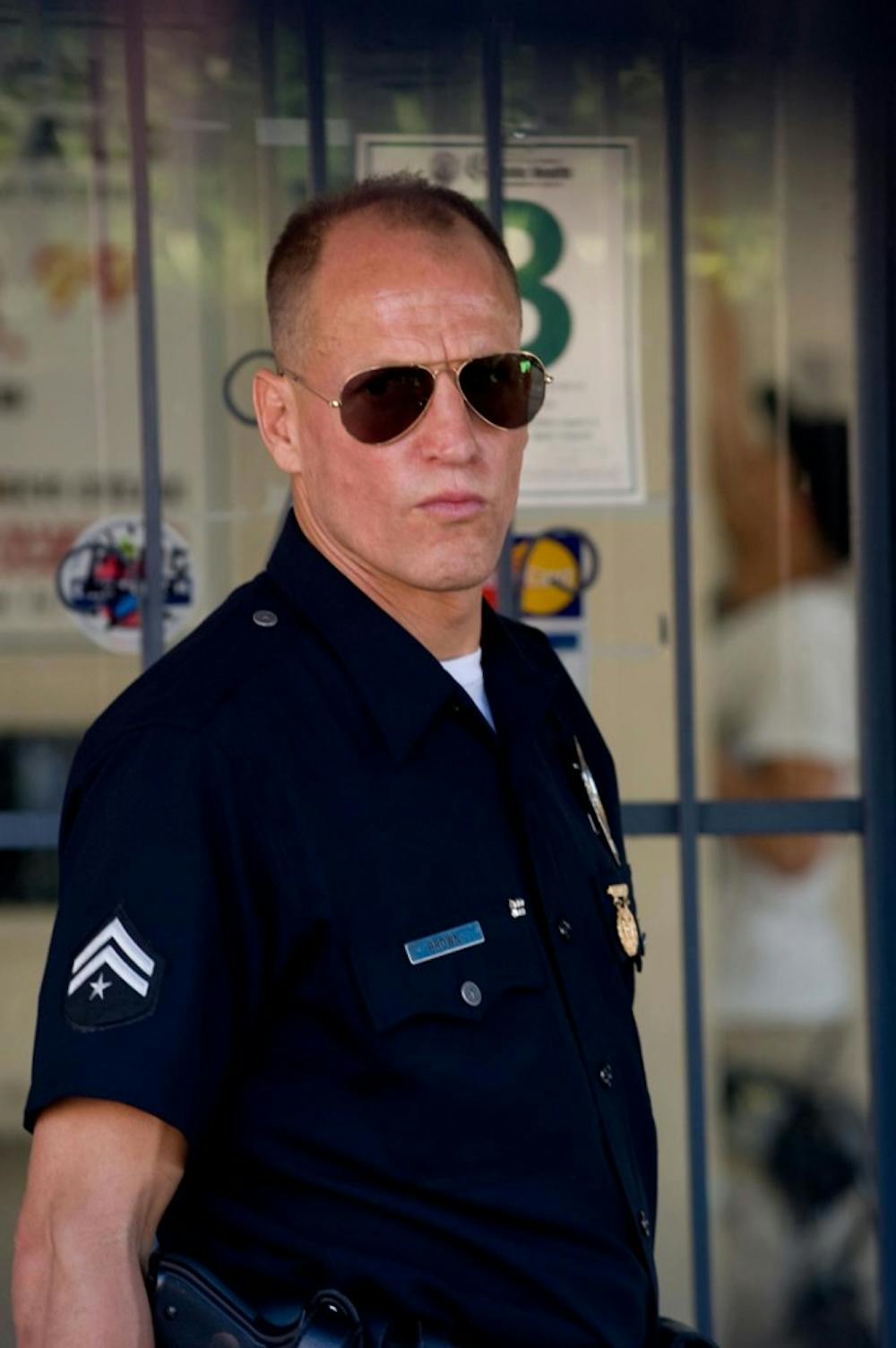In the pantheon of crooked cop movies like “Training Day” and “Bad Lieutenant,” “Rampart” shines as a unique character study, relying more heavily on the psychological element than the thrills that are hallmarks of the film noir genre.
Woody Harrelson’s Dave Brown is not the typical one-dimensional thug or the sociopathic power-abuser with simple motivations of greed and control. Harrelson’s performance is intense, roiling with an undercurrent of claustrophobia and threat, a man on the brink of a complete unraveling. The complexity of the character belies the traditional anti-hero archetype.
Co-written by crime novelist extraordinaire James Ellroy (“The Black Dahlia,” “L.A. Confidential”), “Rampart” is partly inspired by the real-life story of the scandal that rocked the Rampart district of the Los Angeles Police Department in the ’90s, where nearly 70 cops in the department were accused of egregious misconduct and, essentially, running a gang of their own.
The movie, set in 1999, riffs on the tensions that the Rodney King case stirred up. The action unfolds with Brown getting caught on video beating a suspect. Brown seems to have no problem digging his own grave, but there is no shortage of people handing him shovels either. When he is wryly advised that he “could just stop beating people up,” Brown acerbically retorts, “I don’t stop to see if there’s a camera in my way when I do the people’s dirty work.”
No doubt, he can’t really be “framed” for something he did anyway, but there is also the sense that Brown will be made the poster child for the department’s crack down on malfeasance. The shifting tide seems destined to sweep Brown away and his refusal, or maybe inability to change, now has deleterious consequences.
This is some of what makes his character so interesting and different from the macho caricatures of the typical crooked cop film; after 24 years on the force, he is equal parts placated by rationalizations yet crippled with guilt. He is not so far gone beyond the moral boundaries to be unaware of them and his coping mechanisms seem to be a result of his view of the world as an antagonistic place, not too different from a jungle.
Director Oren Moverman’s cinematography is perfect for setting the tense atmosphere of the film. Extremely close shots are used to convey the feeling of claustrophobia and paranoia. No one is what they seem and answers are hard to come by.
Brown is a complex and conflicting study of a man; he may act like a thug, but he is extremely eloquent and clearly very smart. He is not the compulsive womanizer of crooked cop movie pasts. If anything, he tries to be a good father and a husband of sorts to his two ex-wives. He is not nihilistic or self-destructive for the mere sake of it. At his core, Brown is characterized by cynicism and misanthropy. Ultimately, he wants to fix the mess he is in yet his incorrigibility plunges him into quicksand.
“Rampart” is a taut and mesmerizing portrait of a man “falling down.” It steers clear of reductionist explanations of motivation and Harrelson’s phenomenal performance makes Brown’s conflicted character instantly compelling. The film breathes a new life into the corrupt cop genre.
thescene@theeagleonline.com





